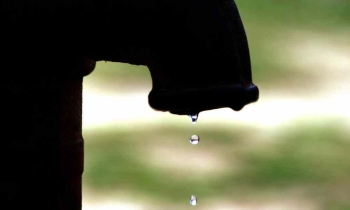A murderer and sex offender has won a permanent ban against his picture appearing in the media in a landmark press freedom case in Northern Ireland, the Independent has reported.
The High Court in Belfast ruled the Belfast Sunday Life, a sister paper of the Independent, could not publish unpixelated photos of Kenneth Callaghan. The paper had argued publishing the pictures would help the public avoid him after his release.
The Independent report said: [Link]
Mr Justice Stephens said Callaghan posed a low to medium risk of re-offending and that publishing the images would disrupt the support networks put in place under a pre-release scheme in which he was taking part. That in turn could increase his chances of reoffending.
Callaghan admitted the 1987 murder and sexual assault of Carol Gouldie, 21. Martin Breen, the executive editor of Sunday Life, said: "We are very disappointed with this judgment. We feel it is very draconian and has huge implications for the media generally."
The Belfast Telegraph in an editorial said: [Link]
Callaghan, who beat 22-year-old Carol Gouldie to death at her east Belfast home in 1987 and then raped her as she lay dead or dying, is currently on a day release programme which enables him to move freely in the run-up to his eventual release.
In a major exposé last year, the Sunday Life revealed that a number of the province's most notorious criminals are walking the streets on day release from prison and the paper sought to publish his photograph so the public could avoid contact with him.
Callaghan sought and obtained a temporary injunction preventing the newspaper from using an unpixilated image on the grounds that it could could pose a threat to his safety and affect his rehabilitation. Yesterday the judge made the order permanent preventing us from ever publishing Callaghan's photograph unaltered or any information that could pinpoint his whereabouts.
Our view was — and still is — that it is impossible to substantiate the proposition that publication of Callaghan's picture could endanger his life. We say there is a legitimate public interest in alerting communities to the presence of such individuals.
That view is also shared by the hundreds of Sunday Life readers who signed a petition backing its Right to Know campaign and by the Gouldie family, who supported the newspaper from the outset.
On balance, surely the community's right to be able to identify such individuals outweighs an unquantifiable risk to an offender who has carried out the most evil crimes?
While the Callaghan ruling is regrettable, of greater significance to the media is that an injunction was granted to the Prison Service preventing publication of pictures of any “serving” prisoner or one who is or has been assessed at the Service's Prisoner Assessment Unit in Belfast, unless their features are obscured. The paper also has to give the authorities 48 hours notice of the intention to publish.
In our view it is a Draconian measure which is so swingeing in scope that it could seriously impede the media's right to investigate matters of public interest in relation to crime.









